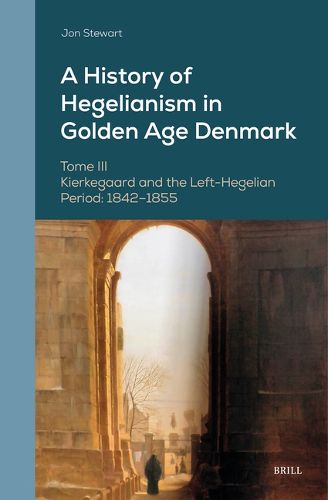Readings Newsletter
Become a Readings Member to make your shopping experience even easier.
Sign in or sign up for free!
You’re not far away from qualifying for FREE standard shipping within Australia
You’ve qualified for FREE standard shipping within Australia
The cart is loading…






This is the third volume of a three-volume work dedicated to exploring the influence of G.W.F. Hegel's philosophical thinking in Golden Age Denmark. The work demonstrates that the largely overlooked tradition of Danish Hegelianism played a profound and indeed constitutive role in many spheres of the Golden Age culture.
This third tome covers the most exciting and dynamic time in the Danish Hegel reception from 1842 to 1855. This heterogeneous period saw the emergence of several new figures, many of whom were associated with the left-Hegelian school. This period is best known for the publication of the pseudonymous works of Soren Kierkegaard. The present tome places these famous works in the context of other contemporary Danish discussions about Hegel's philosophy. It shows that many of Kierkegaard's criticisms had been raised by other Danish thinkers before him and that a large part of his polemical campaign was aimed at the leading figures of the previous periods of the Danish Hegel reception, namely, Johan Ludvig Heiberg and Hans Martensen.
$9.00 standard shipping within Australia
FREE standard shipping within Australia for orders over $100.00
Express & International shipping calculated at checkout
This is the third volume of a three-volume work dedicated to exploring the influence of G.W.F. Hegel's philosophical thinking in Golden Age Denmark. The work demonstrates that the largely overlooked tradition of Danish Hegelianism played a profound and indeed constitutive role in many spheres of the Golden Age culture.
This third tome covers the most exciting and dynamic time in the Danish Hegel reception from 1842 to 1855. This heterogeneous period saw the emergence of several new figures, many of whom were associated with the left-Hegelian school. This period is best known for the publication of the pseudonymous works of Soren Kierkegaard. The present tome places these famous works in the context of other contemporary Danish discussions about Hegel's philosophy. It shows that many of Kierkegaard's criticisms had been raised by other Danish thinkers before him and that a large part of his polemical campaign was aimed at the leading figures of the previous periods of the Danish Hegel reception, namely, Johan Ludvig Heiberg and Hans Martensen.